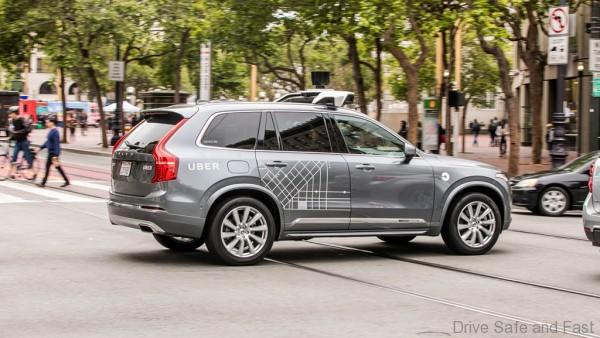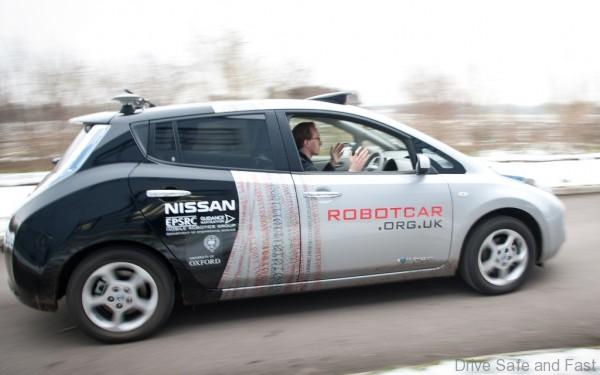Singapore Tops The List For Self-Driving Readiness
This research comes as self-driving vehicles gain momentum in the wake of COVID-19.
A recent study was conducted to see how the automotive landscape will be changing as Covid-19 takes on slower progress in Asia and most of the developed nations. Will drivers turn their backs on the humble steering wheel and let themselves be driven by a ‘robot’ or will they continue to enjoy the behind the wheel experience.
Asia has the worst traffic jams in the world and there is no light at the end of the tunnel for its reduction even with billions being spent in all nations for public transport and changing working culture. This is probably why Asians are eager to get inside a self driving car.
Covid-19 has taught many corporations to trust their employees to continue delivering sterling work ethics from the comfort of their home. Many office towers will soon be empty as more and more Asians start working from home and this could reduce traffic congestion and even the need to own a car. It might actually be the move that reduces car consumption and the pace of new models being launched.
Maybe in time, our job as a motoring journalist will slowly come to an end as less cars as bought and higher number of self driving cars get launched. Well, there is really no need to review a self driving car. It then becomes a technology review and we will leave that to the tech writers.
Meanwhile, here is the report that has just been released by KPMG.

PRESS RELEASE: Less hype, but more progress, is the key finding of this years’ KPMG Autonomous Vehicles Readiness Index (AVRI), as authorities have focused on the regulatory and societal acceptance enablers of the technology. Now, the COVID-19 pandemic and shifting user and environmental requirements for transportation could accelerate the next round of AV development and deployment around the globe.
The 2020 KPMG AVRI, the third edition of the index, evaluates the progress of 30 countries and jurisdictions in adopting and moving forward with AVs, and finds the majority have in fact increased their AV readiness in the past year.
“We’ve just begun to see the transformational potential of AV technology,” says Richard Threlfall, Global Head of Infrastructure, KPMG International. “Immense progress has been made on AVs operating more safely and effectively. Looking forward, driverless vehicles could have an expanded role in addressing new requirements for moving people and goods, arising from the COVID-19 pandemic. For example, crowded public transit could be partially relieved by on-demand, autonomous minibuses to promote social distancing, while AVs for shipping can meet the demand for contactless delivery.”

Expanding the use and ultimately integrating AVs into daily life depends to a large extent on what countries, jurisdictions and localities do to further AV development and deployment.
The AVRI measures countries and jurisdictions across 28 indicators to assess their readiness and progress in furthering AV deployment and innovation. The indicators are organized under four pillars: policy and legislation, technology and innovation, infrastructure, and consumer acceptance.

Which countries and jurisdictions are most ready for autonomous vehicles?
According to the AVRI, the countries and jurisdictions best positioned to propel the future of autonomous transportationof those researched are:
Singapore, Netherlands, Norway, United States, Finland, Sweden, South Korea, United Arab Emirates, United Kingdom and Denmark.

(The 2020 AVRI ranks five new countries and jurisdictions in the Index: Belgium (21), Chile (27), Denmark (10), Italy (24) and Taiwan (13))
Overall, the 2020 AVRI shows that the majority of countries have ramped up their AV readiness, with 17 of the 25 countries profiled in the 2019 AVRI increasing their scores in 2020. AV pilots and testing areas in particular are expanding – approximately two-thirds of the 30 countries and jurisdictions in the AVRI have areas designated or approved for AV testing.
Singapore edged out the Netherlands, which ranked first in the previous two AVRIs, for top ranking, reflecting the numerous steps it has taken since the start of 2019 to further the progress of AVs. The city-state has now published national standards for AVs and opened a tenth of all public roads in Singapore to AV testing.
Both Singapore and the Netherlands are leaders in promoting electric vehicles (EVs), a key precursor to AVs. Singapore has plans to massively increase the number of EV charging stations, from 1,600 to 28,000 by 2030, while the Netherlands has the most EV charging stations per capita. Norway meanwhile is the world leader in adoption of EVs and in addition to extensive AV testing, has established three AV bus routes in Oslo.

The US stands out with 420 AV company headquarters – 44 per cent of all those tracked in the report, including technology companies such as Google’s Waymo unit and vehicle makers such as General Motors and Ford, leading in AV development.
South Korea saw the biggest year-over-year rise of any country in the Index, climbing six places to seventh from 2019 to 2020. The country was propelled by the introduction of a national strategy for AVs, published in October 2019, which is hoped to reduce road deaths in the country by three-quarters. In the meantime, new entrant, Taiwan, was immediately placed in thirteenth place.
As a region, Asia Pacific has seen significant developmental strides with eight countries and jurisdictions being featured in the 2020 index. “We have seen a strong shift to embrace AV technology and increased acceptance amongst policy makers, society and researchers, as well as in the business community,” says KPMG Asia Pacific Head of Infrastructure, Sharad Somani.
“China and India have shown significant initiatives across parameters that will change the nature of transport in the coming years. AV/EV deployment will be a crucial part of any government’s transformative journey towards creating a Smart City, leveraging technology for an efficient and sustainable public infrastructure delivery.”
While Singapore is a role model for countries, jurisdictions and cities aspiring to create a conducive atmosphere to promote innovation and adoption of AV, the real opportunity will be in exploring how AV/EV can change the nature of infrastructure for public transport, freight and logistics.
Continued Somani: “Developing data policies and protocols and setting policies on licensing and insurance will be critical. Given the majority of economic activity is concentrated in cities, and public transport is the responsibility of local authorities, we see transport departments of local governments in mega cities such as Beijing taking more pro-active measures to promote the AV ecosystem.”

“In Thailand, even though there has yet to be commercial testing for autonomous vehicles, we have seen recent initiatives by the government and universities to push autonomous vehicles”, says Tidarat Chimluang, Head of Industrial Markets, KPMG in Thailand said. “Just recently, the Office of National Broadcasting and Telecommunications Commission (NBTC), Siriraj Hospital and the private sector participated in the ‘Unmanned Vehicle Pilot Project Driving Thai Healthcare to 5G Era’ project that uses 5G technology to offer contactless delivery of medical supplies.
This is an important step for the autonomous vehicle industry in Thailand as well as for the medical services and healthcare industry. Moving forward, the enhancement of four pillars: government policy and legislation, technology and innovation, infrastructure and consumer acceptance will accelerate the development of autonomous vehicle industry in Thailand.”
Deeper dive on key cities
For the first time, the 2020 edition of the AVRI also looks at AV initiatives at a municipal level – reviewing developments in five notable cities: Beijing, Detroit, Helsinki, Pittsburgh and Seoul.
“Many of the most exciting developments in moving AVs forward are taking place at a local level, led by cities, municipalities or states,” according to Threlfall. “Shared road transport including taxis and buses is typically the responsibility of local rather than national governments, so support at a local level can be even more important than national policy.”













